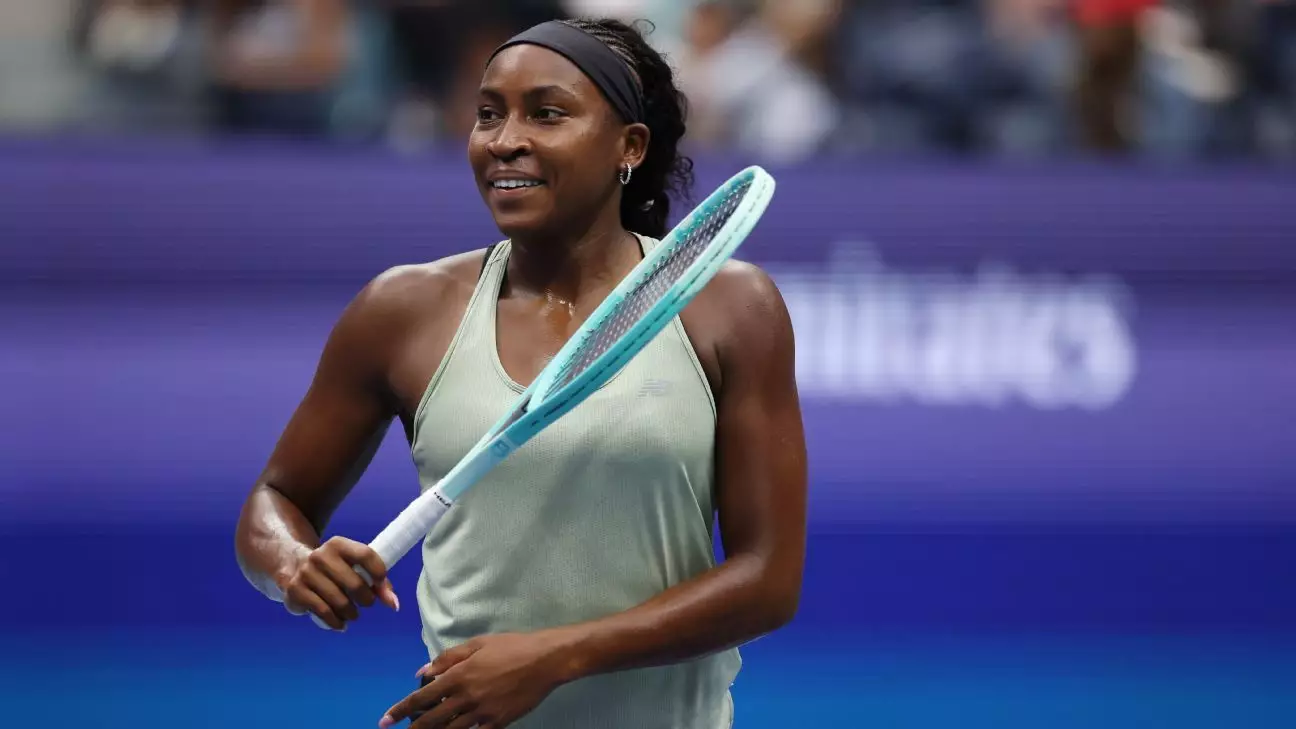In the fiercely competitive world of professional tennis, even the slightest technical adjustments can determine the trajectory of a star’s career. Coco Gauff’s recent decision to change her coaching team underscores a pivotal moment in her quest for consistency and greatness. By dismissing her longtime coach Matthew Daly just days before the 2025 US Open, Gauff signals a desire to pivot from familiar routines and embrace fresh perspectives that can elevate her game. Such a move isn’t merely about personnel; it’s a statement of intent—a recognition that mastering the nuances of technique and mental resilience requires constant evolution.
The inclusion of biomechanics specialist Gavin MacMillan, known for her work with top-ranked players like Aryna Sabalenka, exemplifies this shift towards a more data-driven, technical approach. Gauff’s acknowledgment of her past serve struggles and her frustrations with double faults highlight her willingness to tackle her vulnerabilities head-on. Her prior issues with the yips and inconsistent serving form demonstrate that even the most talented athletes are not immune to technical flaws that can derail their confidence and results. Introducing a dedicated biomechanics expert into her team signifies a strategic effort to build a more reliable, powerful serve—an area that could unlock her potential at the highest level.
Balancing Experience and Innovation for Peak Performance
While Gauff remains loyal to her seasoned coach Jean-Christophe Faurel, bringing in external expertise reflects a mature understanding that success often demands interdisciplinary approaches. Faurel has been instrumental in helping her secure major titles, including the 2023 French Open victory. Yet, her sporadic serve woes—a critical weapon in her arsenal—have persisted, especially during recent events like the Canadian Open. These glitches, although manageable, reveal the ongoing need for technical refinement and mental fortitude.
Her recent performances, including early exits and disappointing losses, serve as stark reminders that even champions must confront their weaknesses. It’s encouraging to see her seize this opportunity not just to seek better results but to bolster her overall confidence. Her decision to work with Gavin MacMillan during practice sessions indicates a proactive stance towards honing the technical foundation necessary for sustained success. This is a testament to her dedication—understanding that the path to dominating the sport isn’t linear, and continuous adaptation is crucial.
Gauff’s willingness to make bold coaching decisions emphasizes her strategic mindset. Rather than resting on her laurels, she recognizes that greatness entails relentless pursuit of improvement. Her past achievements, like winning the French Open and reaching finals at major tournaments, showcase her talent and resilience. However, to transition from talented contender to dominant champion, she must transcend her current limitations, particularly in areas as fundamental as her serve.
Challenging the Status Quo: Embracing Change as a Catalyst for Growth
In the cutthroat realm of tennis, loyalty is vital but often tested by the relentless pressure to perform. Gauff’s decision to dismiss Daly—whose expertise lay in grip technique—suggests she’s prioritizing her evolving needs over familiarity. Such bold moves are fraught with risk, yet they embody a forward-thinking attitude necessary for staying atop the sport’s competitive pyramid.
This transition also signals a broader shift in how top athletes are approaching their development: blending technical innovation with strategic coaching to forge a more resilient, adaptable game. For Gauff, it’s about harnessing new insights, refining her weaknesses, and rebuilding her confidence for the big stage. Her recent struggles, especially on serve, are not just technical issues but reflections of deeper psychological challenges that can be overcome through a holistic, proactive approach.
Ultimately, Gauff’s decision underscores a fundamental truth: transformation within professional sports is often born from discomfort. By re-evaluating her team and embracing new technical expertise, she exemplifies a growth mindset that could turn her current struggles into stepping stones for future triumphs. Her ongoing journey demonstrates that setbacks are not signs of failure but opportunities to innovate, evolve, and redefine what it means to be a champion.

